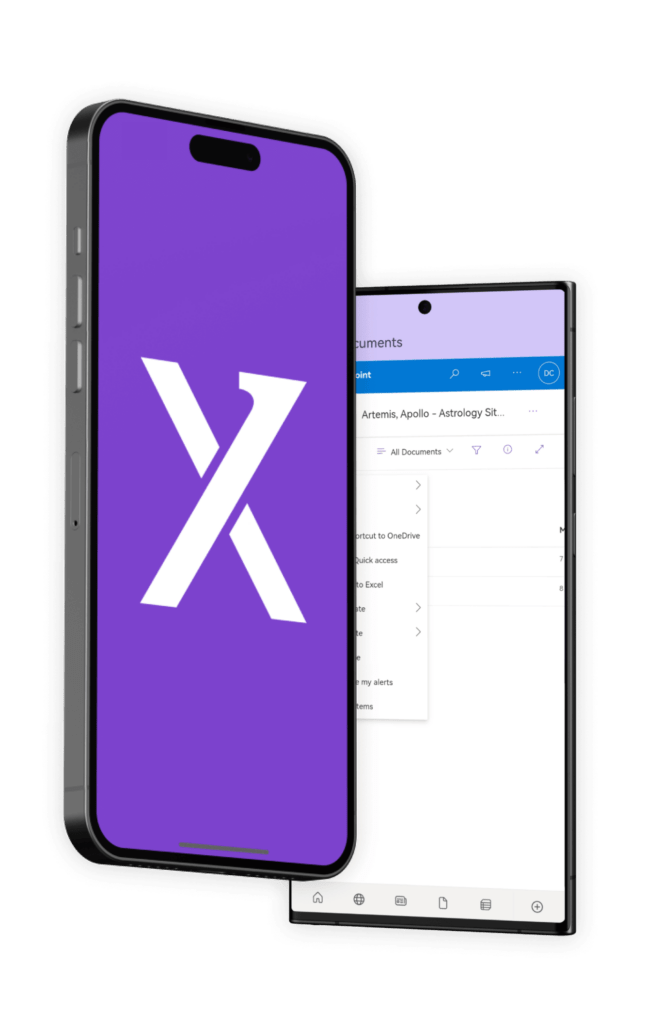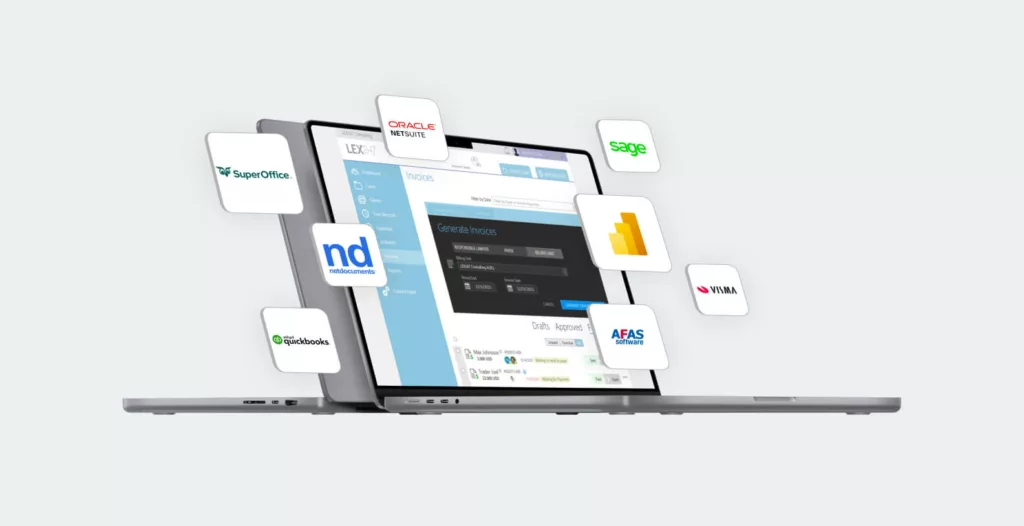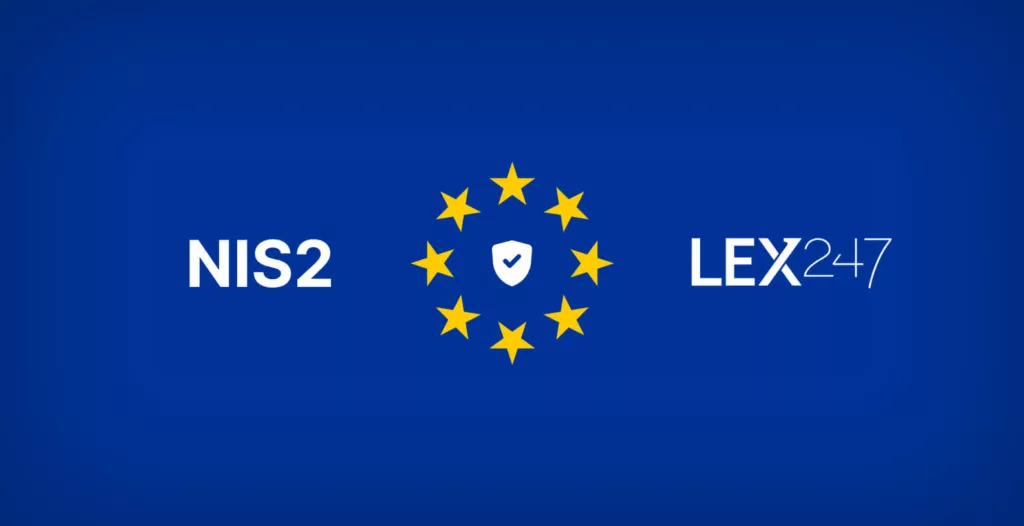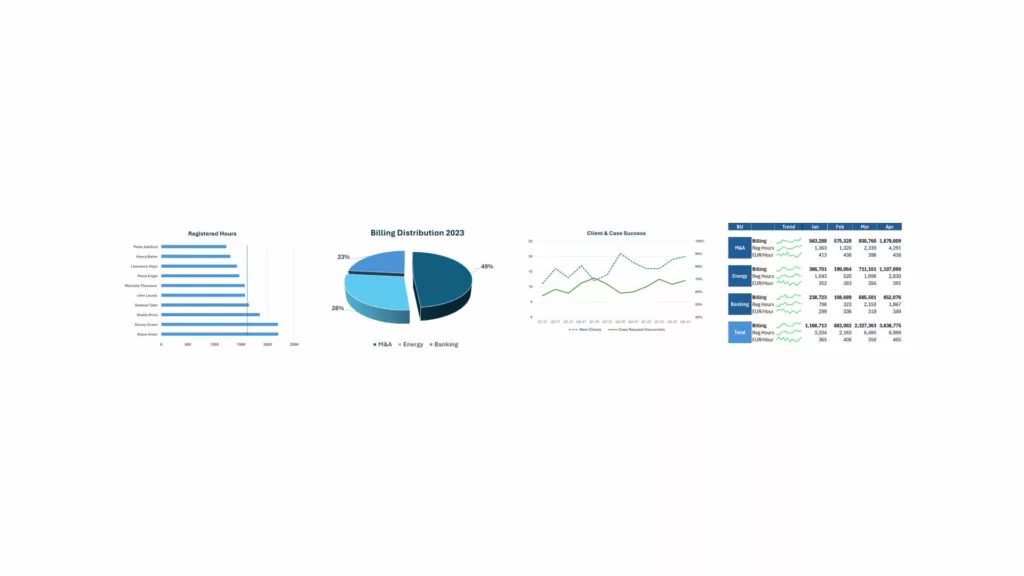2023 was a breakthrough year for legal tech and digitalization. Generative AI, the first full year of ChatGPT, and the new capabilities of generative large language models (LLMs) have been top topics in the legal world in 2023. Technology is starting to play a more important role as part of the solution for the legal practice industry. There is a greater focus on structured data used for analytics, streamlined workflows, and increased collaboration within the law firm.
LEX247 has been developed with the latest technology to enable interaction with modern AI services, and we have extensive experience from law firms evaluating legal practice management software solutions.
The legal practice management software is often one of the key parts of a law firm’s digital strategy, and it must work in seamless harmony with the various other tech stacks that will be used by the law firm. But before you evaluate a new legal practice management software, it is recommended to first develop a digital strategy for the firm.
A digital strategy for a law firm outlines how the firm plans to leverage digital technologies and tools to achieve its business objectives, improve efficiency, and enhance client services. It is important to choose the right software, but it is also important to understand how it should fit in with the overall strategy.
The first measure must always be to fully understand the current state of the workflow and how the organization uses technology. Who will be using the new technology, and how do they currently work? Do they work the way they do because of technical limitations, or is it the best way of working? What are the current limitations and hindrances? The better you get a clear picture of the current situation, the better understanding you will get of any new technology solution.
Your firm will hopefully grow over time, and the technology needs will evolve along with it. Consider how well the software can scale to meet your future requirements. Does it offer additional modules or features you can activate as you grow? Can it easily integrate with new niche tech solutions? Are there limitations to the number of users or the amount of data storage?
Once you have done the homework with your own organization, we have listed some good questions we have been asked by law firms during their evaluation of LEX247.
How is time captured?
For more billable hours, higher productivity, and greater profitability, spend less time recalculating and sorting time entries for invoicing.
Is there real-time access to information from anywhere?
This is essential for effective hybrid and remote working, allowing secure access to important documents, offering lawyers much more flexibility and versatility, and reducing the need to repeatedly copy and share multiple documents.
How is access control managed?
Given the sensitive nature of legal work, the ability to control who has access to what information is essential. The access control feature is particularly crucial in large law firms where multiple departments may work on different parts of the same case. Restricting access based on roles or involvement provides an extra layer of security and mitigates the risk of data leaks.
Can all communication in a matter be stored in one place?
Having all documents and emails in one central location makes it easier for legal professionals to access information quickly. Legal teams often need to collaborate on cases, and having all documents and emails in one place facilitates seamless communication. Storing documents in a centralized system helps maintain version control.
Is an email preview available inside the web application?
Legal professionals often rely heavily on email communication. Having email previews directly within the practice management software allows users to quickly review and respond to emails without the need to switch between different applications. This streamlines communication and saves time. By incorporating email previews, the practice management software becomes a central hub for all case-related information, including emails.
How is calendar and task management handled?
Calendar and task management tools are used to schedule appointments, court dates, and deadlines. Reminders and notifications help individuals stay organized and meet important deadlines.
Is it a modern API interface?
Legal professionals often use a variety of tools and services, such as document management systems, billing software, e-discovery tools, and more.
APIs, the intermediaries that allow two applications to talk to each other in real-time (Application Programming Interface), contribute to a user-friendly experience for legal professionals, allowing for seamless integration with these third-party services and ensuring a cohesive and interconnected legal technology ecosystem.
Can it integrate natively with Document Management Software?
Integration ensures real-time synchronization between the legal practice management system and the DMS. This means that any changes made to documents, whether in the practice management system or the DMS, are instantly reflected across both platforms, reducing the risk of version conflicts. It also enhances client communication by providing legal professionals with quick access to relevant documents.
Is simultaneous editing of documents available (co-authoring)?
Legal teams often collaborate on cases; it is important that they can collectively contribute to drafting and editing documents, reducing the time it takes to finalize the legal documents. With simultaneous editing, version conflicts are minimized.
Does the system provide a database for Business Intelligence?
Can the managerial team seamlessly discern both high and low-performing segments within the business? Ensuring actionable insights derived from top-notch data guarantees that each decision maximizes its impact on efficiency, productivity, and profitability.
Does it have a user-friendly interface?
An intuitive and user-friendly interface that minimizes the learning curve for users and encourages widespread adoption within the organization.
Can the system handle multiple offices and currencies?
Law firms are often a network of individual entities. Can the software handle individual offices, currencies, and languages while still supporting seamless collaboration?
Moreover, who will take charge of hosting and owning the data? It’s crucial to confirm the ability to effortlessly migrate the data in case of a software change.
How is cybersecurity managed?
Remote and hybrid working have increased the risk of ransomware entering a system via a poorly configured connection or device. Therefore, it’s important to ask when choosing legal practice management software how it manages cybersecurity and whether the system incorporates high levels of built-in security with encrypted data.
Conclusion
Choosing the right legal practice management software isn’t just about finding the latest features; it’s about aligning technology with your firm’s digital vision. By understanding your workflow and current technical impediments, considering future growth, and asking the right questions, you will be better positioned to choose a solution that will support your team, enhances client service, and scales alongside your success.







